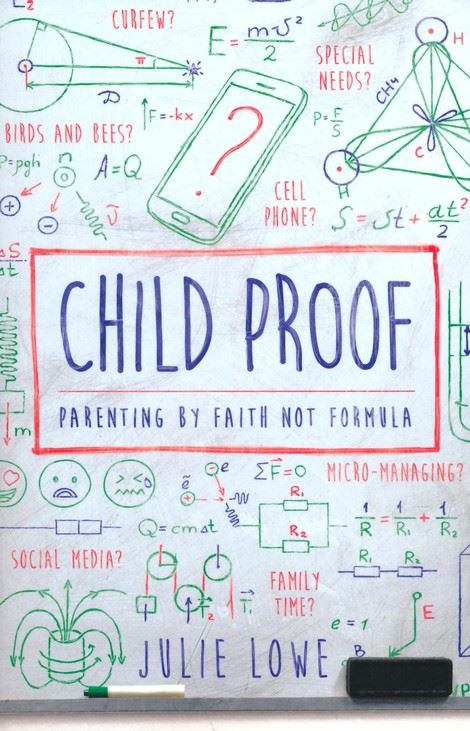
The purpose in a man’s heart is like deep water, but a man of understanding will draw it out. -Proverbs 20:5
Kelly came in to talk about some struggles with parenting her children. Kelly liked routines. She was often up at the crack of dawn and in bed by 8:00 p.m. She enjoyed staying on schedule, lived by the clock, and thrived on staying organized. Her daughter and son were a different story. Oliver, her husband, was a night owl and it seemed their son, Dylan, was too. It was a battle getting Dylan up in the morning and a battle getting him to bed at night. His best thinking happened after eight o’clock, when Kelly’s brain was shutting down and she longed to have her children in bed and her day over. Her toddler daughter, Emily, had acute sensory issues, coupled with an asthma condition that made it difficult for her to sleep through the night. This meant that Emily often woke up throughout the night, and took shorter naps during the day. Because of Emily’s sensory issues and random asthma attacks, Kelly was having a hard time sticking to a schedule,no matter how much she would like it.
Photo Credit: Thinkstock/Ridofranz

Why Formulaic Approaches Don’t Work for Every Family
There are formulaic parenting approaches that assert that you will have well-behaved, happier children if they stay on a tight schedule. Because Kelly personally enjoyed this type of lifestyle and routine, she mistakenly believed that it would also benefit the rest of her family. Instead, it was creating tension in the family and frustration for Kelly. She was evaluating her family’s home life through a blueprint, an approach that works well for some homes, but did not benefit Kelly’s family.
Photo Credit: Thinkstock/DragonImages

"She committed herself to learn how to wisely love her family..."
In counseling, Kelly was able to see the assumptions she had made about how a family should function and the formulaic approach she was applying to their family life. She saw how they were working to the detriment of Oliver and the children. She committed herself to learn how to wisely love her family, and to consider the ways her children (and husband) were wired and the specific needs they each had. Both Kelly and Oliver had natural leanings that needed to be considered, along with the needs of their children that stretched them outside their parenting preferences. Oliver began to realize that the needs of his daughter and his wife might require him to engage and assist in new ways. Kelly and Oliver began adapting their home life accordingly.
Photo Credit: Thinkstock

Meeting Your Kids Needs in a Way that Works for Your and Your Spouse
Since Oliver was a night owl, he committed to being the parent who was “on” for their daughter at night. He would be responsible for the evening routines of baths, reading, and tucking into bed. Should Emily wake up, have trouble sleeping, or struggle with her breathing, Oliver would handle it. Kelly could prepare for the next day and get to bed at a reasonable hour. She found that if she could get a solid six or seven hours of sleep, she was able to function better, think more clearly, and more easily manage the irregular schedule throughout the day.
Photo Credit: Unsplash/Roman Kraft

"She gave herself permission to let some of her perfectionistic standards go."
The more Kelly thought through how she could love the family God had given her, the more she desired to sacrifice her own preferences for their benefit:
- She held her agenda and daily plans more loosely and trusted God to give her the grace and energy she needed. As she focused on the needs of her home, she was able to experience contentment even in the midst of chaotic moments.
- She also understood that she could find ways to thrive in the midst of a family that did not conform to her own personal strengths, weaknesses, and preferences. With the help of Oliver and some wise friends, she found ways to have uninterrupted time alone—thanks to babysitters or kind church members who offered to watch the kids.
- She got creative in planning simple meals and organized tasks around Emily’s naps.
- She gave herself permission to let some of her perfectionistic standards go.
Photo Credit: Unsplash/Vladislav Nikonov

"It requires a willingness to challenge fixed ideas on how godly family life works."
Parenting according to the needs of the family sometimes goes against our personal parenting preferences, the things we’ve assumed are basic ground rules for raising children, or our ideal of a model home life. Parenting with your specific family in mind does not mean that you compromise biblical truth, but it means that you contextualize it to your home. It requires a willingness to challenge fixed ideas on how godly family life works.
Photo Credit: Thinkstock

God Has Made You the Expert of Your Child, So Trust Your Own Discernment
God has established you as your child’s counselor, educator, discipler, and mentor. As a parent, you are perfectly positioned for this task. Although outside help and professionals can be useful, you are the expert. Very few people in your child's life will be as committed as you are to knowing and understanding them. You spend the most time and energy with your child. You have more conversations and share more of everyday life with your children than anyone else does. You intuitively read their faces, body language, and silences. You sense when something is amiss.
For example, your daughter comes home and does not make eye contact. She says that her day was fine, heads to her room, and shuts the door. This may be a typical pattern for some children, but for this child, it signals that things are askew. You notice and pursue your daughter. When she shuts down your attempt at conversation, you file away the moment in hopes that the Lord will provide insight or opportunity at a later time.
Photo Credit: Thinkstock/LightFieldStudios

Parents Often Perceive that Something is Amiss, but Might Not Slow Down Long Enough to Figure Out Why
This understanding does not come from some mystical psychic power. It is discernment honed by years of observation about how your child is wired and her typical responses. Your insights come from thousands of big and small events as you have watched your children handle sadness, fear, anger, hurt feelings, and temptation.
You are already an expert at knowing your children in ways that would take a professional counselor months to figure out. Sometimes parents simply need to slow down enough to evaluate and piece together what we know and perceive. As a counselor, when I talk through circumstances with parents, I often find that their perceptions are accurate. Many parents question their instincts, wondering why they feel strongly about something and whether they are wrong. No doubt any good parent should be open to asking those questions. However, as I draw out why parents feel a certain way, facts and details often emerge that support their conclusions. They’ve just never taken the time to untangle their thoughts and perceptions.
Photo Credit: Thinkstock/BrianNiles

Know the Strengths and Weaknesses You and Your Spouse Bring to Parenting:
Becoming an expert on my family means that I need I need to know my spouse well—his strengths, weaknesses, gifts, interests, limitations, and temptations—and look for godly ways to speak, nurture, and balance when needed.
- We consider each other’s parenting styles and how we complement or contradict each other.
- We consider who tends to handle particular children or certain situations better. For example, Greg is known to be the one who handles vomit and all other bodily fluids in our home. Why? Because the other parent (me) is known to be a wimp. The sight of such things will likely add more vomit to the situation.
It is important to take time to know well the people God has placed in your family and to understand how you all function, thrive, and grow together.
Photo Credit: Thinkstock

"No one will be as committed to knowing your child as much as you."
The same is true for your child. No one will be as committed to knowing your child as much as you. Counselors, mentors, professionals, and their knowledge will pale in comparison to what you know about your child. When parents are committed to understanding their kids, they know things that seem intuitive, but actually come from years of observing and interacting with their children.
 This article is an excerpt from Child Proof: Parenting by Faith, Not Formula. Used with permission.
This article is an excerpt from Child Proof: Parenting by Faith, Not Formula. Used with permission.
Julie Lowe is a faculty member at the Christian Counseling & Educational Foundation (CCEF). She holds an MA in counseling from Biblical Theological Seminary. She is a licensed professional counselor with more than eighteen years of counseling experience. Lowe is also a registered play therapist and has developed a play therapy office at CCEF to better serve families, teens, and children. She is the author of the book, Child Proof: Parenting by Faith, Not Formula (New Growth Press). Julie and her husband, Greg, have six children and serve as foster and adoptive parents.
Photo Credit: Thinkstock/Sasiistock
Originally published Tuesday, 06 November 2018.



